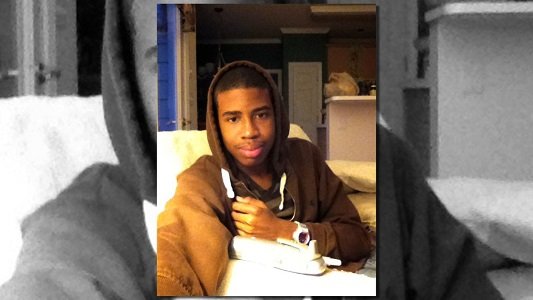CNN — After all the comparisons to George Zimmerman, Michael Dunn’s fate turned out very differently.
Dunn, who also killed a black 17-year-old and said he did it in self defense, now faces decades in prison after he shot into an SUV full of teenagers during a spat over loud music.
But this story is far from over. The prosecution wants another conviction. Dunn could appeal the convictions he already has. And once again, the country is at odds about whether racial profiling led to a young man’s death.
Both sides to keep fighting
After 30 hours of deliberation, a Florida jury on Saturday found Dunn guilty of three counts of attempted murder as well as for shooting into the teens’ vehicle. But jurors didn’t convict him of murder for the death of 17-year-old Jordan Davis.
State Attorney Angela Corey said prosecutors will seek a new trial in Duval County on the murder charge.
“Justice for Jordan Davis is as important as it is for any victim,” said Corey, whose office also prosecuted Zimmerman for the shooting death of Trayvon Martin. Zimmerman was eventually acquitted.
Even without a murder conviction, Dunn faces a lengthy prison term. Each attempted second-degree murder conviction carries a minimum sentence of 20 years. There’s also a possible 15-year sentence for the conviction shooting in the teenager’s vehicle.
“You are looking at basically at life in prison,” Dunn’s attorney Cory Strolla said. “At 47 years old, that’s a life sentence regardless of count one.”
Strolla said he would challenge the convictions and would consider asking for a change of venue.
“For the retrial, I almost think we would have to,” the attorney said. But again, I may not be the counsel at that point. We are a long ways away from that.”
Analysts disagree
Criminal defense attorney Carrie Hackett, who was not involved in Dunn’s case, said she thinks the case may have been another example of overcharging.
“I think that there is an issue of overcharging because there’s always a question when you bring a charge that involves intent,” she told “CNN Newsroom” on Sunday. “And in this first-degree murder charge, it’s premeditation. When a jury has to look at — did somebody plan? Was this strategic? Did they communicate this plan to somebody else? That’s a situation where a jury could very easily get hung up on deciding, what was the person’s intention?”
But another attorney, Mo Ivory, said she didn’t think Dunn nor Zimmerman were overcharged.
“What I do think is that the prosecution failed to give the jurors what they needed to know about that very intent,” Ivory said, such as Davis’ character and aspirations.
Ten bullets over music
On November 23, 2012, Michael Dunn pulled into a gas station in Jacksonville and parked next to a red Dodge Durango full of teenagers.
Dunn didn’t like the loud music — “rap crap,” as he called it — coming from the teens’ SUV. So he asked them to turn it down.
What followed next depends on whom you believe. Dunn claimed Davis threatened him, and he took matters into his own hands after seeing what he thought was the barrel of a gun sticking out of the Durango.
But prosecutors said Dunn lost control, firing three volleys of shots — 10 bullets total — at the SUV over music he didn’t like.
The prosecution also challenged what Dunn did next: He left the gas station and drove 40 miles away to a bed and breakfast in St. Augustine. There, he walked his dog, ordered a pizza, then drank rum and cola.
After learning almost six hours later that he had killed Davis, Dunn testified that he became “crazy with grief,” experiencing stomach problems for about four hours before taking a nap.
“My intent was to stop the attack, not necessarily end a life,” he testified. “It just worked out that way.”
No gun found
Yet his fiancee, Rhonda Rouer, testified that Dunn had never mentioned any weapon to her — be it a shotgun, a stick, a barrel or a lead pipe — unlike what Dunn had said.
In fact, police found a basketball, basketball shoes, clothing, a camera tripod and cups inside the teenagers’ Durango, but no gun.
And Dunn himself never called police. The first contacts he had with them were at his home in Satellite Beach — 130 miles south of St. Augustine — as he was being apprehended.
Arguing that he wasn’t in a rational state of mind, Dunn admitted, “It makes sense that I should have (contacted authorities). We didn’t. I can’t tell you why.”
‘A little bit of closure’
The lack of a murder conviction led protesters to march outside the Jacksonville courthouse calling for Corey to lose her job.
But Davis’ mother, Lucia McBath, didn’t express any anger when she spoke to reporters Saturday night. She said her family is “so very happy to have just a little bit of closure.”
“It’s sad for Mr. Dunn that he will live the rest of his life in that sense of torment, and I will pray for him,” McBath said. “And I’ve asked my family to pray for him.”
CNN’s Greg Botelho and Sunny Hostin contributed to this report.
